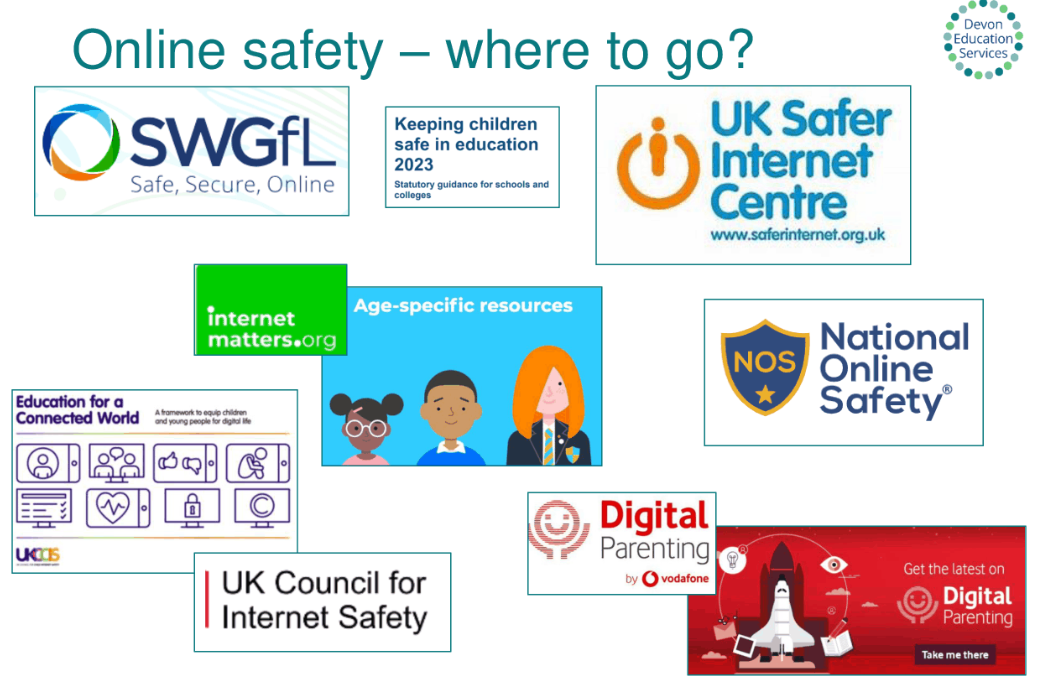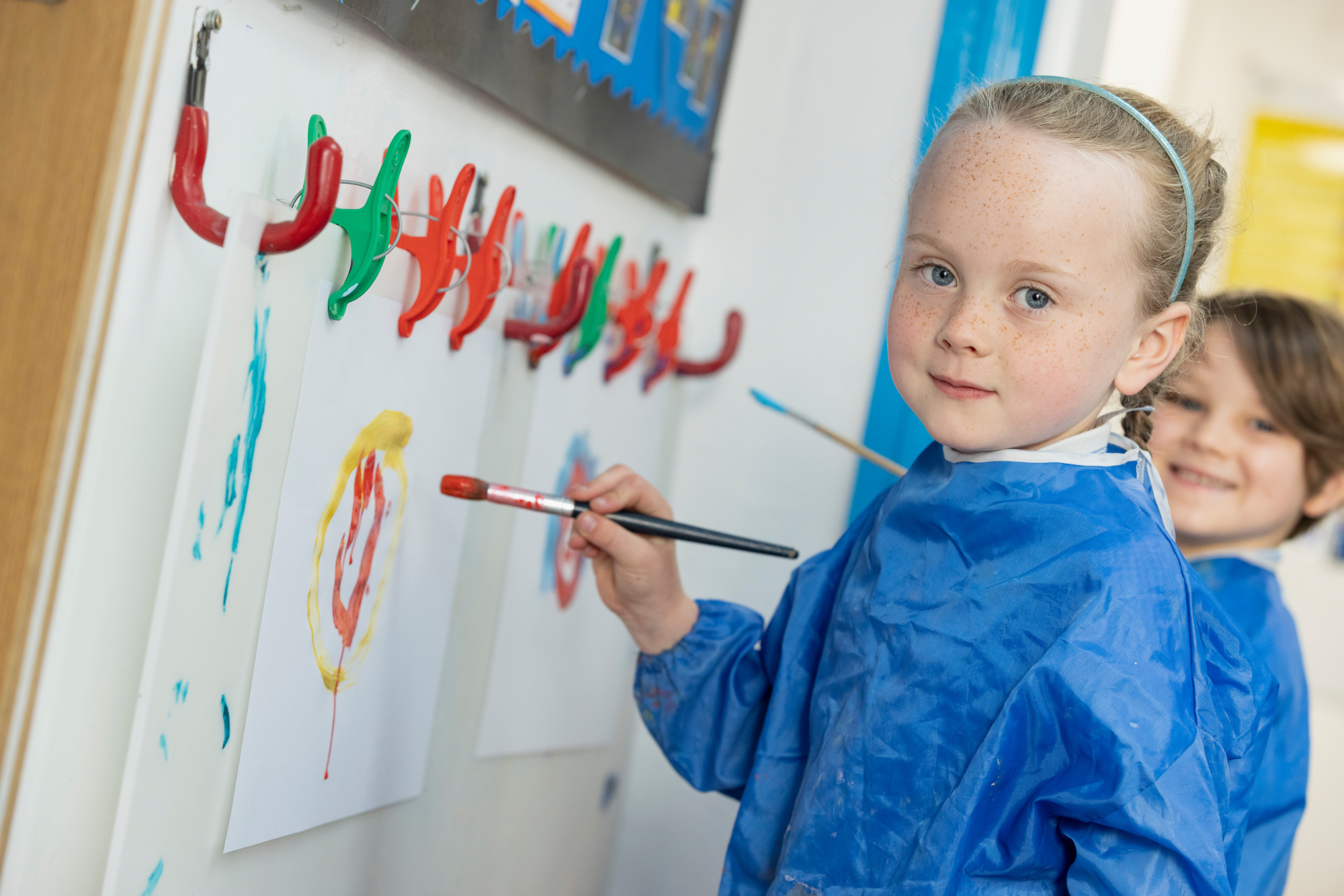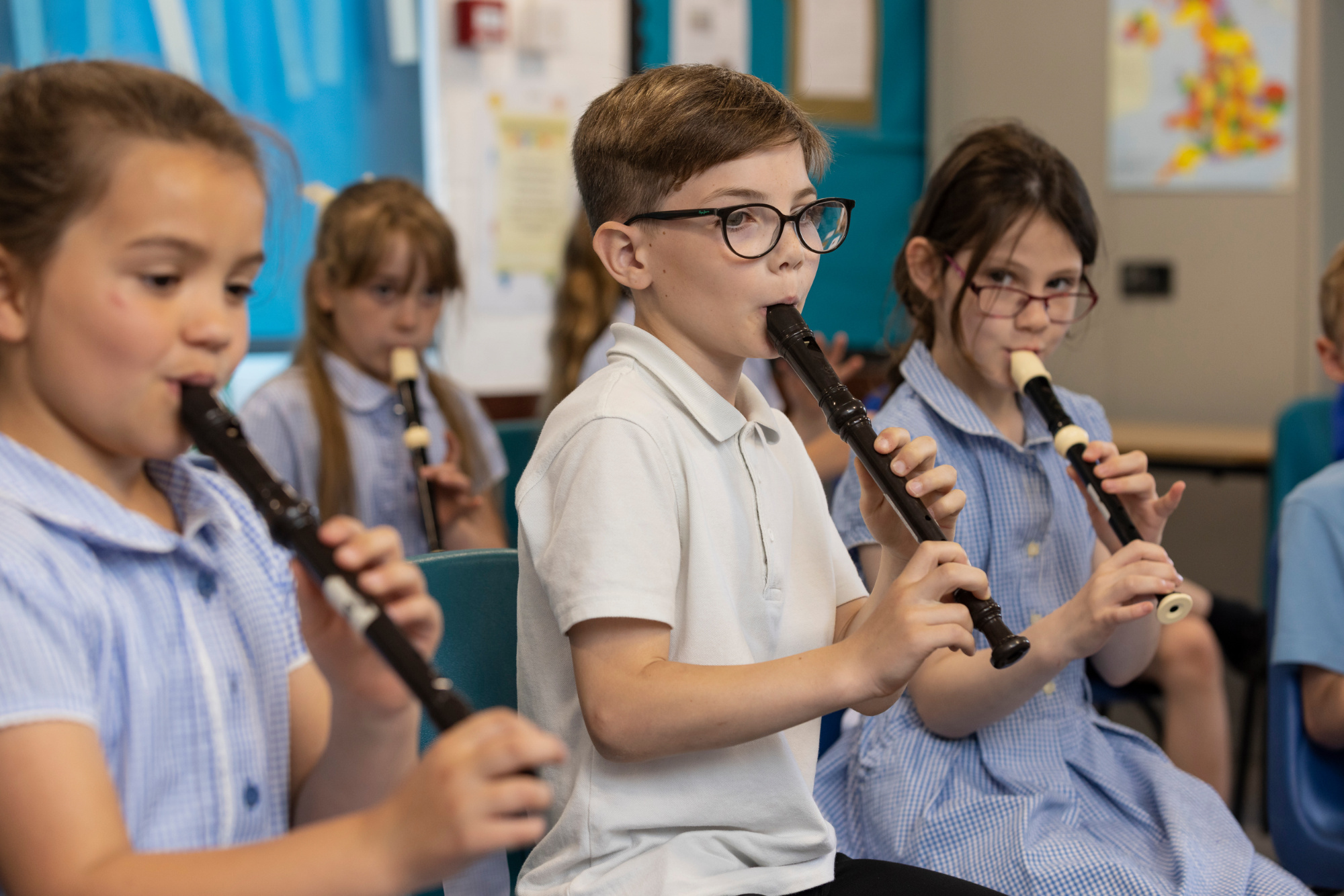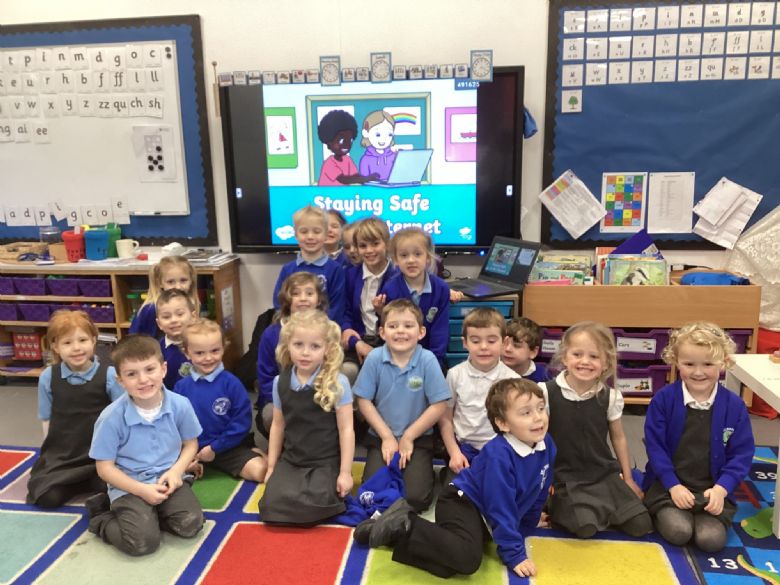Safeguarding
The difference between Safeguarding and Child Protection
| Safeguarding applies to all children and young people. |
| Child Protection applies to children who have/are experiencing abuse in their lives. |
Safeguarding and Child Protection is about managing risk.
The role of the school:
Everyone who comes into contact with children and their families has a role to play in safeguarding children. School staff are particularly important as they are in a position to identify concerns early and provide help for children, to prevent concerns from escalating. (Keeping Children Safe in Education, 2022)
Safeguarding is what we do for all children and young people to keep them safe whilst in our care. Child Protection describes the policy and procedures specifically for those young people who are at risk of serious harm or have been seriously harmed.
Safeguarding starts as soon as children enter the school and aims to ensure that all our staff are well trained and know how to behave appropriately. Our staff and volunteers go through all safeguarding checks on successful appointments to the school. When staff have concerns they know who to speak to and understand the next steps that will take place.
Headteacher: Designated Safeguarding Lead (DSL)
Mrs Lucy Hill (Contact: head@stnicholas.dsat.org.uk)
Deputy Headteacher: Deputy Designated Safeguarding Lead (DDSL)
Mrs Sarah Waddington (Contact: deputy@stnicholas.dsat.org.uk)
Deputy Designated Safeguarding Lead (DDSL)
Miss Becky Pistell (DDSL)
Online Safety
-
NSPCC
Keeping Children Safe Online

As a safeguarding school, we take online very seriously. We are aware of the need to keep pupils safe in this digital age and promote online safety across each year group of the school, ensuring children are aware of our Internet Use expectations and how to keep themselves safe when using the Internet.
It is essential that school and parents/carers work together to promote online safety messages to the children in our care and to provide guidance to children on how to keep safe on line and what to do if they are uncomfortable in a situation.
Below you can find links to useful websites and resources that will help to keep children safe in the digital world.
If you have and questions or concerns with regards to online safety then please do not hesitate to contact us.
Top Tips for Parents and Carers
Have a look at the tips and links below with some suggestions on how to get you started and help you to stay safe and positive online. You and your family can #PlayYourPart in creating a better internet by…
Having conversations without judgement.
Whether by playing games, watching videos, or doing things your child enjoys, spending time together online is a great way to start conversations about the online world and how they’re finding being a part of it.
It is important to ask questions and take an interest in what your child enjoys online.
An essential part of having this open dialogue is to not judge, even if their behaviour or life online isn’t what you wanted or expected. This ensures that your child feels they can come to you if ever they make a mistake or experience a problem online.
Knowing where you can learn more about their favourite apps and games.
Websites like Common Sense Media or The Family Gaming Database can be invaluable sources of information. When your child starts talking about a new game or app, why not do some research into the reporting and blocking options available? Then you can help your child if they come to you with an issue.
Getting support if things go wrong.
There are lots of organisations who are there to support you and your family if something has gone wrong. The Report Harmful Content website can help you with issues such as cyberbullying, impersonation and threats. You can report worrying behaviour towards children to CEOP. Find out more on Childnet’s Get Help page.
Reassuring your child that whatever happens online, you are there to support them.
Let your child know that the best way to address any problem they have online, is to tell a trusted adult immediately. For example, this might include someone sending them a friend request; an online message; telling them to visit a specific website, or app; or asking them for their personal information. Reassure them that if anything happens online that they are unsure about, or makes them feel worried or upset, they can come to you for help.
-
Common Sense Media
Reviews of Films/Books and Games with Age Ratings
Safer Internet Day
Safer Internet Day 2025- 11th February
Tips for Parents and Carers: Keeping you and your loved ones safe online
This Safer Internet Day we are starting a conversation about how to spot, respond to and report all types of scams online. Scams can take many forms and may target anyone, including young people. Use these top tips to keep you and your loved ones safe online.

Enjoy going online together and talk regularly about your family’s online lives
The internet is amazing and can help us all to access information and entertainment. Spend time online with your child to understand how they are using technology and talk together about the good and the bad parts of being online. Talk about your own experiences and find other opportunities to get the conversation started, like stories in the news. Make sure your child knows they can talk to you about anything that they see or experience online.
Take online security measures seriously
The internet can be a tool used by criminals to target their victims, but a few simple steps can help keep you and your accounts secure. Use strong and separate passwords for online accounts and set up two step verification (2SV) where it’s available. You may also be able to set parental controls to prevent unwanted online purchases and limit children’s access to harmful content.
Look out for warning signs that someone or something online cannot be trusted
“It just seems too good to be true!” – Other common signs of a scam include contact that you weren’t expecting or being asked for money or personal information (think: bank or contact details, passwords, or phone numbers). Scammers use other tactics to manipulate their victims into paying, like playing with your emotions, or building a sense of urgency so you are rushed into making a decision. If you aren’t sure it’s reliable, don’t risk it.
Remember that anyone can be a victim of a scam
Scammers are good at what they do and will target anyone. We all need to stay vigilant and support those who are most vulnerable including children and the elderly by helping them recognise what to look out for. If anyone in your family has been scammed, talk openly about it. There should be no shame in being victim to a scam and it’s never your fault.
Know where to get help if something goes wrong
If you or someone you know has been the victim of a scam online, you’re not on your own. Help is available and you are not to blame for what has happened. In England, Wales and Northern Ireland, you can report fraud and cyber crime online to Action Fraud or by telephoning 0300 123 2040. In Scotland, report to Police Scotland by calling 101. You may also be able to report via social media, if the scam has taken place there or to another relevant organisation, like your bank, if you think your account is at risk.
Remember, if you or anyone else is in immediate danger, call 999 immediately.
Top Tips for use Tips for Parents and Carers of 3-7 year olds
This Safer Internet Day we are starting a conversation about how to spot, respond to, and report all types of scams online. Scams can take many forms and could target anyone, including young people. Whilst your 3-7 year old may not yet be ready to use the internet independently, use our top tips to start good online habits now that will help keep them safe in the future.
Enjoy going online together
Spending time online together with family is an important learning experience for the youngest internet users. Not only will you both enjoy the quality time together, but you can supervise their usage and guide them to make the safest choices.
Talk about their online experiences
Help give your child the language to explain what they’re experiencing online by starting conversations about the internet and technology as early as possible. Talking regularly about what they love doing online, as well as any worries they may have , will help establish this habit and mean they’re more likely to come to you for help as they get older.
Make use of settings, especially relating to online purchases
Parental controls and other safety settings can help protect your child from online harms, including scams. To avoid any nasty surprises on your bank statement, make sure in-app purchases or new downloads require a passcode, and don’t set card details to autofill on devices your child has access to.
Explain that not everything online is true
If your child is too young to understand what fraud is, you can still lay the groundwork to help them stay safe online as they grow. Start simple and talk about the difference between real and make believe. Help them recognise that not everything online is true and that some things they see or hear could be stories, jokes or tricks.
Make sure they know they can always come to you
The most important thing for your child to know is that you are always there to support them, online and offline. Encourage them to talk to you if anything they experience makes them feel worried or upset, and show them they can trust you to stay calm, listen and help make things better.
Safer Internet Day 2024 - film for parents and carers
Safer Internet Day 2024
Safer Internet Day 2024 took place on the Tuesday 6th of February 2024, with celebrations and learning based around the theme ‘Inspiring change? Making a difference, managing influence and navigating change online’.
Coordinated in the UK by the UK Safer Internet Centre, the celebration sees thousands of organisations get involved to promote the safe, responsible and positive use of digital technology for children and young people.
Safer Internet Day is the UK’s biggest celebration of online safety. Each year we cover an online issue or theme that speaks to the things young people are seeing and experiencing online. Created in consultation with young people across the UK, this year Safer Internet Day will be focusing on change online, this includes covering:
- Young people’s perspective on new and emerging technology
- Using the internet to make change for the better
- The changes young people want to see online
- The things that can influence and change the way young people think, feel and act online and offline
Badger Class enjoying Internet Safety Day!
Help and advice for you as a parent or carer
About Internet Safety Day 2024
https://saferinternet.org.uk/safer-internet-day/safer-internet-day-2024
Top Tips Parents and carers
These top tips have been written for you (parents and carers) to help you support your child to stay safe and happy online.
Resources
EYFS and KS1 Resources
activities-and-ideas-for-key-stage-1
t-t-29363-buddy-the-dogs-internet-safety-story-powerpoint_ver_6
t-t-2546175-eyfs-staying-safe-on-the-internet-powerpoint_ver_3
KS2 Resources
ideas-for-safer-internet-day-9th-february
t-t-4962-internet-safety-powerpoint_ver_9
t-t-9716a-using-the-internet-responsibly-flipchart-powerpoint_ver_1
Parent Internet Safety Pack
1-what-do-i-need-to-know-about-safer-internet-day
5-parents-and-carers-resource-sheet
7-what-to-trust-online-a-parents-and-carers-guide
Wellbeing
Welcome to our Wellbeing and Mental Health Section
At St Nicholas Primary School, we take pride in our nurturing and supportive ethos, where we endeavour to ensure each and every pupil and member of staff is valued and feels safe. We embrace our role, alongside our families and the community, in contributing to the developing emotional wellbeing of our children and their learning about being healthy, from a physical and mental health perspective.
Our role in school is to ensure that children are able to manage times of change and stress, and that they are supported to reach their potential or access help when they need it. We also have a role to ensure that children learn about what they can do to maintain positive mental health, what affects their mental health, how they can help reduce the stigma surrounding mental health issues, and where they can go if they need help and support.
Senior Mental Health and Wellbeing Lead- Mrs Waddington


Early intervention to identify issues and provide effective support is crucial. We endeavour to support and promote mental health and wellbeing as per the DfE’s guidance, Mental Health and Behaviour in Schools:
• Prevention: creating a safe and calm environment where mental health problems are less likely, improving the mental health and wellbeing of the whole school population, and equipping pupils to be resilient so that they can manage the normal stress of life effectively. This includes teaching pupils about mental wellbeing through the curriculum and reinforcing this teaching through school activities and ethos;
• Identification: recognising emerging issues as early and accurately as possible;
• Early support: helping pupils to access evidence based early support and interventions;
• Access to specialist support: working effectively with external agencies to provide swift access or referrals to specialist support and treatment.
How Can We Get Help for My Child?
Local Support
CAMHS (Child & Adolescent Mental Health Service) Access to CAMHS is usually through your GP. For further information, please go to: https://www.oxfordhealth.nhs.uk/camhs/wilts/
Barnardo’s Healthy Minds Wiltshire. This website has lots of information, practical tips and advice about supporting children and young people’s emotional wellbeing. On Your Mind
National helplines and advice website
- If you would like some guidance about talking to your child about emotions this BBC link has some great advice.
- Childline website offers a range of support and advice on anything that may be worrying you. They can offer counselling and 1-2-1 support
- MindEd for Families. MindEd for Families has advice from trusted experts.
- YOUNG MINDS is the UK’s leading charity committed to improving the emotional well being and mental health of children and young people. Click on this link to find out more information and for a Parent Phone line you can call for free advice.
- Anna Freud National Centre for Children and Families - Tips for Talking to your Children about Mental Health
- Child Mental Health & Wellbeing - 10 Top Tips for Parents
- Parents' Mental Health & Wellbeing - 10 Top Tips for Parents
-
SWAPP
Support in Wiltshire: Autism Parent Programme
-
Wiltshire Local Offer
Wiltshire SEND support for young people, parents and schools.
-
Wiltshire Parent Carer Council
The Wiltshire Parent Carer Council (WPCC) is a voluntary organisation, managed by parents and carers FOR parents and carers




